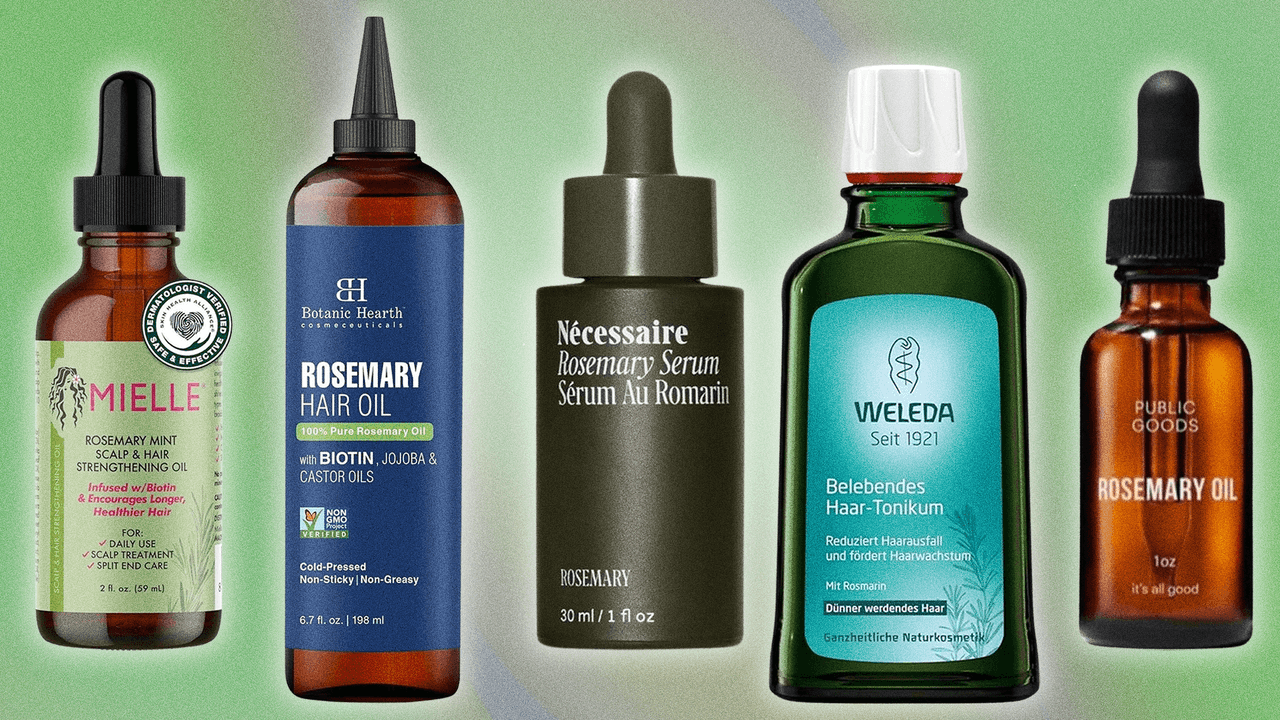If you want to give rosemary oil a go and see if it works for you, there are a couple of ways that you can use it. Firstly, you can massage it directly into your scalp. This is probably the best way, because you’re applying it straight to where it’s needed the most. Mix about five drops of rosemary oil with a teaspoon of carrier oil (which is like coconut oil or jojoba oil), and gently massage it into your lid after a bath or shower. Rinsing it out afterwards is entirely up to you, but if you don’t, you should be careful of your clothes and sheets. If you do decide to rinse it out, let the oil sit for at least 10 minutes before doing so.
Secondly, you can mix rosemary oil straight into your shampoo. It’s best to do this sparingly, so add two or three drops directly to it when it’s in your hand before use. The neat thing about this is that you can also do this for any of your conditioners, creams, and any lotions that you might use.
A Few Rosemary Oils to Consider
Public Goods
Organic Rosemary Essential Oil
Botanic Hearth
100% Pure Rosemary Oil For Hair Growth
Nature Spell
Rosemary Oil For Skin & Hair Growth
Weleda
Rosemary Revitalising Hair Tonic
Mielle Organics
Rosemary Mint Scalp & Hair Strengthening Oil
How Long Will It Take to See Results?
Rosemary oil may not work for everyone, but according to a 2015 trial, participants showed a significant increase in follicle count after just six months of use. However, it’s worth noting that this was a controlled study, so it may not be an accurate representation of real-world results.
What Is Rosemary Oil Good for?
What it will do is hydrate. Rosemary oil is known for adding shine, strength, and a tall glass of water to dry scalps. A 2020 paper by the Iranian Journal of Basic Medical Sciences also found that it has significant “anti-inflammatory, anti-oxidant, anti-apoptotic, anti-tumorigenic, antinociceptive, and neuroprotective properties.” It all sounds very complicated, but what this essentially means is that it could, on paper, reduce dandruff, irritation, and itching.
While it might have some benefits, it’s not recommended for everyone. “If you’re allergic to certain essential oils, I would recommend avoiding rosemary oil altogether,” says Richard Spencer, a consultant trichologist and owner of The Spencer Clinic. “To add to this, even if you’re not allergic to it to begin with, applying it too often can cause some sort of reaction and sensitivity, so I’d recommend using it once or twice weekly maximum. But, to reiterate, if you’re using it for hair loss, there’s no real proof that it can stimulate or accelerate regrowth, so it’s essential that you explore other remedies.”
If Not Rosemary Oil, Then What?
So, while some studies like this 2013 review by Kinki University support the claim that rosemary oil does help with hair loss, some experts aren’t buying it, and recommend other treatments that can actually make a difference.

